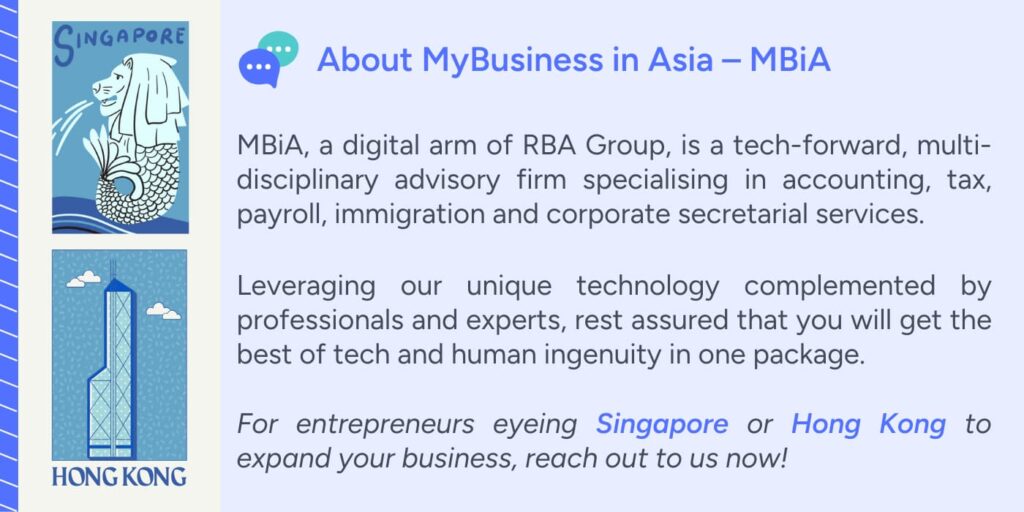Your company is newly incorporated, and your activity already started. Then you will need to consider the accounting process. Especially how and when the operations should be recognized in your accounting software. The requirements of Accrual Accounting are a must for your bookkeeping in Singapore and Hong Kong.
We have assembled a guide on everything you need to know about the accounting methods and ensure your accounting is complying with the accounting standards, in Singapore and Hong Kong.
- Accrual Accounting Method
- Cash Accounting Method
- Accrual Accounting vs Cash Accounting
- Compliance with Accounting Standards in Singapore and Hong Kong
Accrual Accounting Method
Accrual accounting is an accounting method where revenue is recognized when promised goods or services are transferred to a customer and cost is recognized when expenses are incurred.
Under this accounting method, a Company will be able to match its revenue with costs.
Examples of Accrual Accounting:
- Recognize revenue when goods are delivered or services are rendered and not when payment is received.
- Recognize rental expenses in the period of usage of premises, regardless of when is the invoice issued. The invoice may be issued in advance or payment may be made in arrears.
- Recognize subscriptions by spreading them across multiple periods for annual or long term contract and not record the whole sum when they are invoiced and paid.
- Recognize tax liability in the year where profit is earned even though it is payable in the subsequent year.
Cash Accounting Method

Cash accounting is a different accounting method where revenue and cost are recognized when cash are received or paid.
It does not take into consideration when the revenue is earned or cost are incurred.
Examples of Cash Accounting:
- Recognize revenue when payment is made for sales invoice issued for services to be rendered or goods to be delivered in a different period.
- Recognize rental expenses and subscription when invoices are being paid for and not in the period of usage.
Accrual Accounting vs Cash Accounting
Accrual accounting will have Accounts Receivables, Accounts Payables, Prepayment, Accrued Expenses and Provision for Taxation included in a Company’s Chart of Accounts.
By managing these accounts, it allows a Company to better estimate the expected cash inflows and outflows when tracking its Accounts Receivables and Accounts Payables.
As a result, accrual accounting will reflect a much more accurate view of a Company’s financial performance and financial position.
It would allow a Company to better project the profitability of the Business by performing analysis on the financial position.
The downside of accrual accounting is the complexity, as it requires more details for transactions to be recorded.
As such, it would be more costly and time consuming compared to cash accounting.
On the other side, cash accounting is more suitable for small businesses with minimal transactions. It would provide a more accurate view of a Company’s cash flow.
Another advantage of cash accounting is that a Company will not need to pay income tax on revenue where cash has not been received.
However, the main downside of cash accounting is that it may not provide a fair view of the financial situation of the company. Indeed, revenues and related costs may not be booked at the same time if the payments are not made in the same month.
Compliance with Accounting Standards in Singapore and Hong Kong
In Singapore and Hong Kong, financial statements of a Company are required to be drawn up in accordance with their Financial Reporting Standards, which are both based on the IFRS standards.
Therefore, a Company shall prepare its financial statements using accrual accounting for compliance purposes. You can learn more about accounting requirements in Singapore by checking the Accounting Standards Office’s website.
As a bookkeeping services provider in Singapore and Hong Kong, MBiA, under the RBA Group, can assist you to handle your accounting process with respect of the local accounting standards.


